10 Natural Herbs That Can Help Reduce Blood Pressure
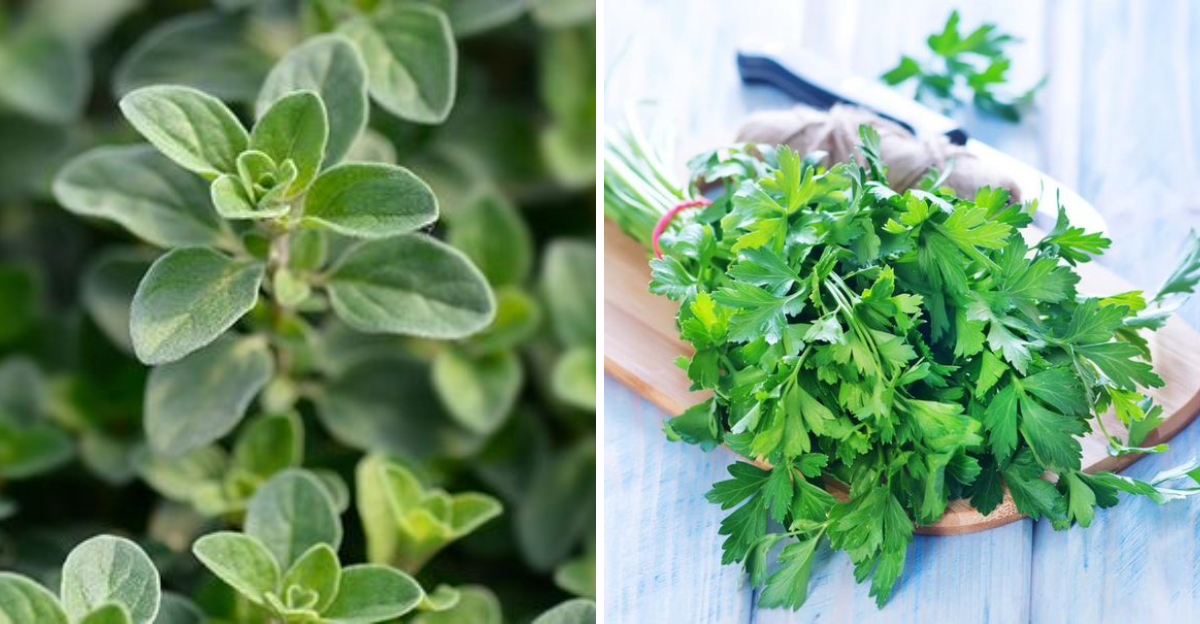
If you’re trying to manage high blood pressure, adding certain herbs to your daily routine could make a real difference. While they’re not a replacement for medication, these natural herbs have been shown to support healthy blood pressure levels and improve overall heart health. Here are 10 worth adding to your spice rack or tea stash.
1. Garlic
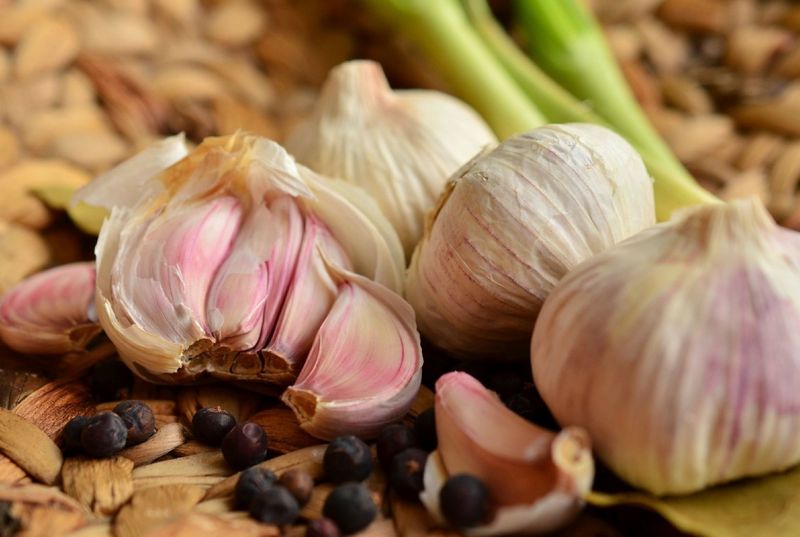
Garlic, a staple in many kitchens, is renowned for its potential to lower blood pressure. Rich in allicin, garlic helps relax blood vessels, enhancing blood flow. Imagine the aroma filling the room as you crush a fresh clove. Whether added to pasta or roasted as a side dish, garlic’s versatility makes it easy to incorporate into meals. Additionally, garlic supplements provide a convenient alternative for those on the go. Its potent benefits extend beyond taste, contributing to overall heart health. Embrace garlic not just for flavor but as part of a heart-friendly lifestyle.
2. Basil
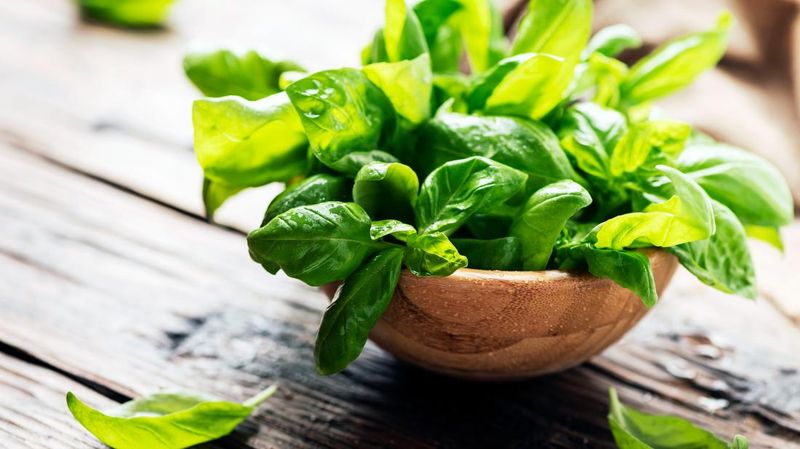
Basil, with its aromatic leaves, brings more than just flavor to dishes. This herb contains eugenol, a compound that may help relax blood vessels and reduce blood pressure. Picture a sunlit garden where basil thrives, its scent inviting and fresh. Sprinkle it over a juicy tomato salad or infuse it in a comforting soup. Fresh basil, beyond its culinary appeal, offers a natural way to support cardiovascular health. Cultivating basil at home ensures a regular supply for both culinary and health benefits, making it a must-have in any herb garden.
3. Cinnamon

Cinnamon isn’t just for sweet treats; it’s a spice with surprising health benefits. Regularly consuming cinnamon can help reduce systolic and diastolic blood pressure. Envision the comforting aroma wafting from a warm bowl of oatmeal sprinkled with cinnamon. Whether stirred into coffee or blended into a smoothie, cinnamon’s versatility shines. Its sweet, warming essence not only delights the senses but also supports heart health. Embrace cinnamon as a staple in your pantry to enjoy its benefits daily. As an ancient spice, it bridges flavor and well-being beautifully.
4. Parsley
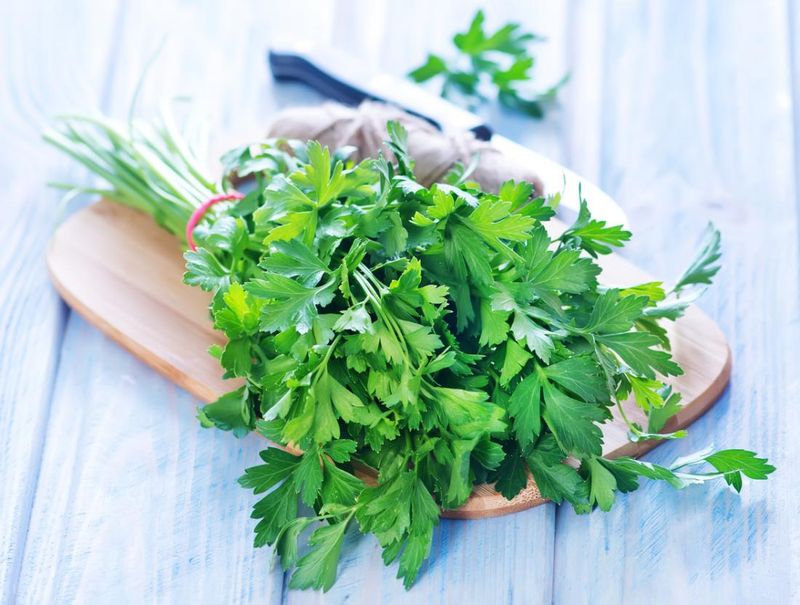
Parsley, often relegated to garnish status, deserves a spotlight for its health benefits. Rich in vitamin C and carotenoids, parsley supports heart health and may aid in managing blood pressure. Imagine plucking fresh parsley from your garden, its crisp leaves bursting with life. Chop it into a zesty tabbouleh or blend it into a vibrant pesto. Beyond its bright flavor, parsley offers a simple, natural way to enhance your meals and support your heart. Embrace this humble herb for its dual role as a flavor booster and a health ally.
5. Hawthorn

Hawthorn, a shrub with vibrant berries, has a rich history in traditional medicine for heart health. Known to improve circulation, hawthorn may also help lower blood pressure. Picture a field of hawthorn bushes, their red berries gleaming in the sun. These berries can be brewed into teas or taken as supplements. Hawthorn offers a connection to nature’s healing power, providing a gentle yet effective approach to supporting cardiovascular function. Its use over centuries underscores its role in holistic health practices. Experience hawthorn’s legacy of heart support today.
6. Celery Seed
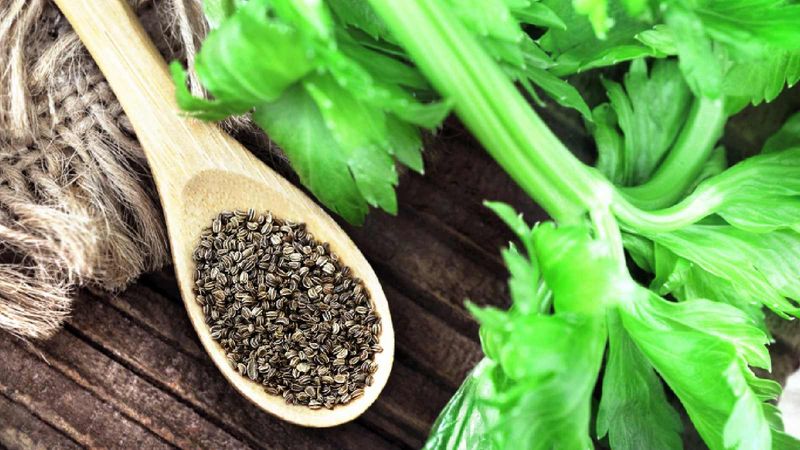
Celery seed, a common spice, offers more than flavor to dishes. Its compounds act as natural calcium channel blockers, aiding in relaxation of artery walls. Visualize a bustling spice market where celery seed’s aroma mingles with other spices. This spice can be used in soups or stews, subtly enhancing flavors and promoting heart health. Beyond its culinary uses, celery seed serves as a natural ally in managing blood pressure. Its unique properties make it a valuable addition to your spice rack for both taste and wellness.
7. Flaxseed
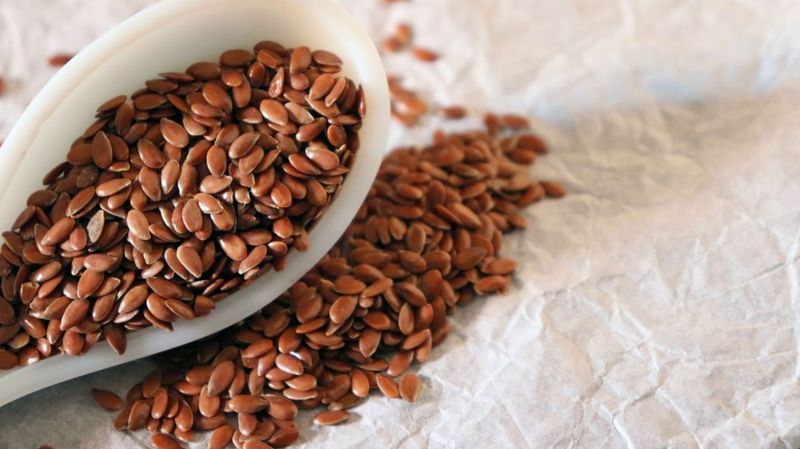
Flaxseed, often ground for use, is a powerhouse for heart health. High in omega-3s and lignans, flaxseed supports arterial function and helps reduce hypertension. Picture a serene morning kitchen where flaxseeds are being blended into a smoothie. Their nutty flavor complements many dishes, from baked goods to salads. While technically a seed, its use as an herb-like ingredient makes flaxseed a versatile staple. Embrace its health benefits alongside its culinary appeal to enrich your diet. Discover how flaxseed can enhance both flavor and wellness in your meals.
8. Ginger
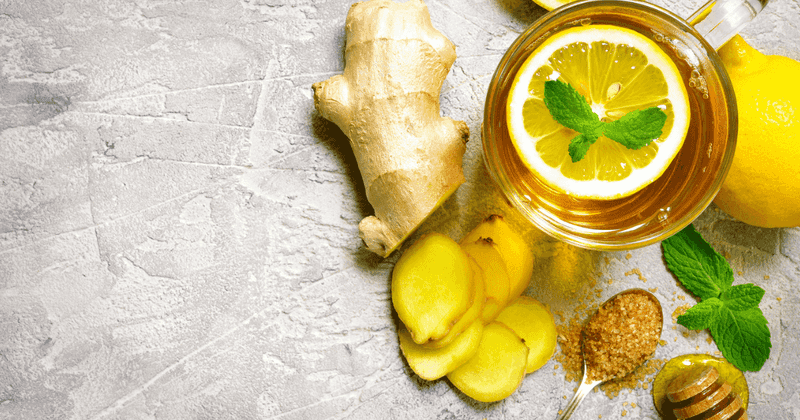
Ginger, with its spicy warmth, offers more than just a zesty kick to dishes. Known to improve circulation, ginger may act as a natural blood thinner, aiding blood pressure reduction. Imagine a steaming cup of ginger tea on a rainy day. Whether grated into stir-fries or infused in tea, ginger’s versatility shines. Its unique flavor profile not only elevates meals but also supports heart health. Embrace ginger for both its culinary and medicinal properties, adding zest and wellness to your daily routine.
9. Turmeric

Turmeric, with its vibrant yellow hue, is more than a spice—it’s a health powerhouse. Curcumin, its active compound, supports better blood vessel function and reduces inflammation. Picture a warm turmeric latte on a chilly evening. Added to curries or smoothies, turmeric adds depth and wellness benefits. Its role in traditional medicine highlights its value beyond the kitchen. Include turmeric in your dietary routine for its anti-inflammatory properties and heart health support. Discover how its ancient roots can enrich modern wellness practices.
10. Oregano
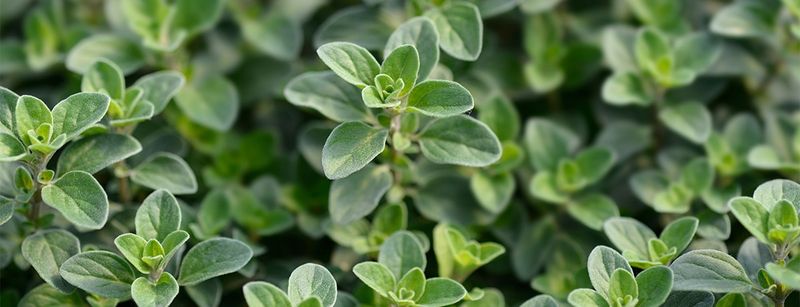
Oregano, with its aromatic leaves, offers more than culinary delight. Carvacrol, a compound in oregano, may help lower heart rate and arterial pressure. Envision a herb garden where oregano thrives, its scent carried by a gentle breeze. Sprinkle it over pizzas or infuse it in marinades for a robust flavor. Beyond taste, oregano provides a natural way to support cardiovascular health. Its presence in your kitchen not only enhances meals but also contributes to a heart-healthy lifestyle. Embrace oregano as a flavorful ally in wellness.
